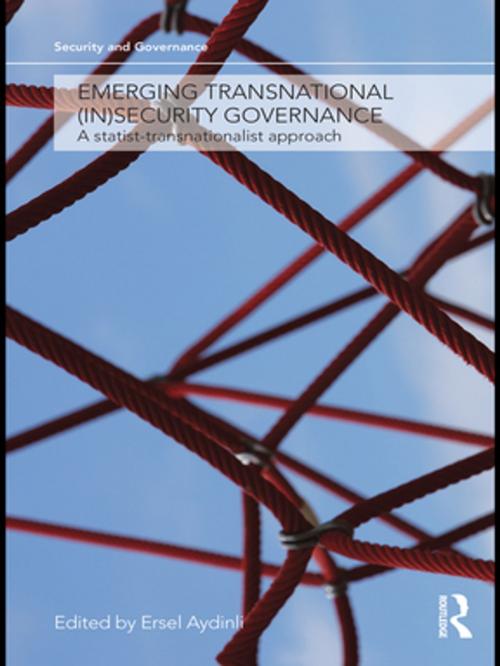Emerging Transnational (In)security Governance
A Statist-Transnationalist Approach
Nonfiction, Social & Cultural Studies, Political Science, Politics, Arms Control, History & Theory| Author: | ISBN: | 9781135157265 | |
| Publisher: | Taylor and Francis | Publication: | February 25, 2010 |
| Imprint: | Routledge | Language: | English |
| Author: | |
| ISBN: | 9781135157265 |
| Publisher: | Taylor and Francis |
| Publication: | February 25, 2010 |
| Imprint: | Routledge |
| Language: | English |
This book presents a selection of edited essays written by leading international scholars engaging with practicing intelligence, military, and police officers and responding to their first-hand international security cooperation experiences. The resulting chapters provide original theoretical perspectives on evolving international security cooperation practices.
Beginning with the premise that intelligence cooperation-domestically between agencies, internationally between states, and transnationally among states, sub-state and non-state actors-is essential in order to successfully counter the evolving transnational nature of security threats, the authors explore the transnationalization in states' responses to a transnational security threat like 'global' terror. They assess whether early signs of a "statist transnationalism" for a new global security cooperation regime can be identified, and look at the use of extraordinary rendition and police liaisons as means for the development and growth of transnational security cooperation.
This book will be of interest to students and scholars of international relations, terrorism, security, policing and intelligence.
This book presents a selection of edited essays written by leading international scholars engaging with practicing intelligence, military, and police officers and responding to their first-hand international security cooperation experiences. The resulting chapters provide original theoretical perspectives on evolving international security cooperation practices.
Beginning with the premise that intelligence cooperation-domestically between agencies, internationally between states, and transnationally among states, sub-state and non-state actors-is essential in order to successfully counter the evolving transnational nature of security threats, the authors explore the transnationalization in states' responses to a transnational security threat like 'global' terror. They assess whether early signs of a "statist transnationalism" for a new global security cooperation regime can be identified, and look at the use of extraordinary rendition and police liaisons as means for the development and growth of transnational security cooperation.
This book will be of interest to students and scholars of international relations, terrorism, security, policing and intelligence.















